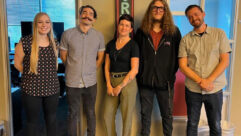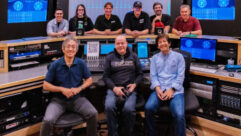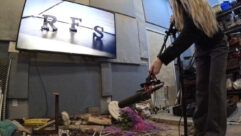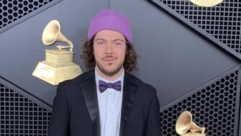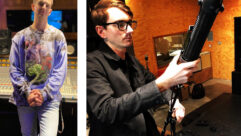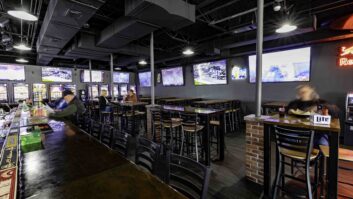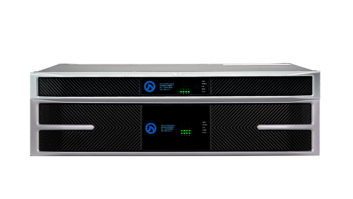In Honor of API Co-Founder Saul Walker, the Saul Walker Memorial Scholarship (Formerly Known as the API Visionary Scholarship) is Offered by Automated Processes Incorporated (API) in Order to Encourage Further Education in the Professional Audio Arts
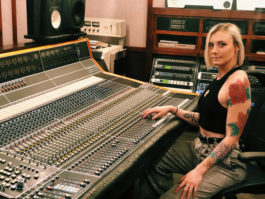
Gilbert, Ariz., July 2, 2020 – The Conservatory of Recording Arts & Sciences (CRAS; www.cras.edu), the premier institution for audio engineering education, is proud to announce that current student Ponie Jones is a winner of a prestigious API Saul Walker Memorial Scholarship.
“Winning the API Scholarship is one of the greatest accomplishments of my life, and I am honored to be representing CRAS in such a fantastic way,” said Jones, a 26-year-old Park City, Utah native who entered CRAS in October 2019. “I first heard about the API scholarship through my CRAS internship coordinator Tamara Parker. I applied for it amidst the COVID-19 quarantine and submitted my fifth cycle project, which was a cover of Ain’t No Rest For the Wicked by Cage the Elephant. “
In honor of API Co-Founder Saul Walker, the Saul Walker Memorial Scholarship (formerly known as the API Visionary Scholarship) is offered by Automated Processes Incorporated (API) in order to encourage further education in the professional audio arts. It recognizes a select group of audio students who exhibit talent and ability in and around the recording studio.
“CRAS is a school that regularly submits applications demonstrating entrants with excellent audio skills and thoughtful essays on the recording/mixing process,” noted API President Larry Droppa. “We’re thrilled that Ponie Jones is joining an elite group of audio engineers who embody the talent, skill and innovation in the audio world as exemplified by API’s co-founder Saul Walker.”
API believes that academic excellence in sound training can be facilitated by using high quality analog equipment in the audio lab. Use of such equipment will not only enhance the learning experience but produce graduates with an enhanced understanding of the advantages of analog audio in today’s music production environments. Annual scholarship submissions are encouraged from any institution with an API studio console in its audio education program. Judging is performed by API staff with winners announced by the end of June each year. Scholarships are worth up to $2,000 each.
Parker said that Jones has excelled at CRAS. “She’s found her niche here at The Conservatory very early on. That’s what it’s all about. That’s why we’re all here…to help up-and-coming engineers hone their skills. API is an excellent company and they have incredible products, and that’s why CRAS uses their consoles. I couldn’t be more excited that one of our students was awarded the API Saul Walker Memorial Scholarship.”
Jones explained that while managing music festivals in northern Utah, she realized live sound was what she was meant to do. “I was mesmerized by the production, the orchestration of this big experience/event to feed a community of like-minded music fiends such as myself,” she explained. “I fully immersed myself in that culture. At one point, my sister introduced me to her friend, Dave Rupsch. He gave me two recommendations: try to get on at SoloTech in Las Vegas as an intern or to attend The Conservatory of Recording Arts and Sciences. Back in June of 2019, I attended an open house at CRAS. The moment I walked in the front door, I was stunned, and I am not lying when I say that on that day, I finally found my home.”
Rupsch, an Arizona resident and monitor engineer for My Chemical Romance, Katy Perry, and Red Hot Chili Peppers, said, “I am absolutely delighted to hear of Ponie Jones’ API scholarship to CRAS. She, as well as Arizona, is extremely fortunate to have such a unique facility as CRAS that will continue to grow her passion for audio both technically and creatively. With access to great equipment, a network of expert instructors, and a collaborative learning environment, I eagerly await the successes she can create for herself at The Conservatory and beyond. Oh, and protect your hearing!”
Jones added that CRAS motivates her to be not only great, but to be exceptional. “I have never worked harder at anything in my life,” she said. “There was a moment in the early cycles where I didn’t think I was smart enough to do this program but I reminded myself that I can do anything if I work hard enough at it. One of the biggest moments of my time at CRAS was with Robert Brock [Director of Education, CRAS] at my first student check in after our Neotek Proficiency. I was very upset about how I had only received an 86 and I was very upset over the fact it wasn’t 100. He told me, ‘Ponie, sometimes our greatest victories aren’t when we succeed but how we handle ourselves when we fail.’ And that statement will stick with me for the rest of my life.”
That notion has propelled Jones and has her pushing her own boundaries. “I would have never applied for the scholarship if I didn’t have the support from my peers and mentors at school. CRAS gave me a home, a family, and the skills to make my dreams come true.”
Jones wants to thank classmates Dylan Torres, Jared Boone, Bryce Muse and Nick Myers, as well as the CRAS staff including Scott Murray, Gerald Schoenherr, Jim Bender, Sam Beckley, Mark Brisbane and Brandon Valfare as her biggest supporters.
CRAS structured programs and highly qualified teaching staff provide a professional and supportive atmosphere, which is complemented by its small class sizes allowing for individual instruction and assistance for students in engineering audio recordings. CRAS has been providing quality vocational training in audio recording for more than three decades. The curriculum and equipment are constantly being updated to keep pace with the rapid advancements in the music and sound recording industries. CRAS’ course offerings and subject matter have always centered around the skills and knowledge necessary for students’ success in the audio recording industries.
The 11-month program is designed to allow every student access to learn and train in all of the Conservatory’s studios which are comprised with state-of-the-art audio recording and mixing gear, the same equipment used in today’s finest studios and remote broadcast facilities, including Pro Tools 12, API Legacy consoles, SSL AWS consoles, Studer Vista consoles, and much more. All students must complete a 280-hour industry internship to graduate from the Master Recording Program II that may ultimately lead to industry employment.
For more information on the Conservatory of Recording Arts & Sciences, please visit www.cras.edu, contact Kirt Hamm, administrator, at 1-800-562-6383, or email to [email protected].

About The Conservatory of Recording Arts & Sciences
Based in the heart of The Valley of the Sun with two campuses in Gilbert and Tempe, Ariz., The Conservatory of Recording Arts & Sciences (CRAS) is one of the country’s premier institutions for audio education. The Conservatory has developed a unique and highly effective way to help the future audio professional launch their careers in the recording industry and other related professional audio categories.
-30-


